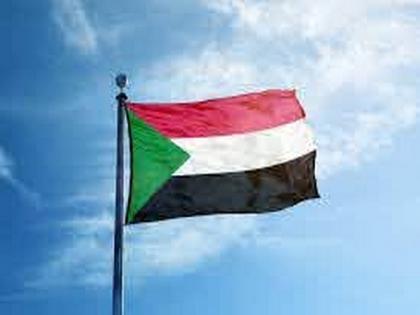Latest violence in Sudan's Darfur sparks displacement crisis
By ANI | Published: May 30, 2021 07:17 PM2021-05-30T19:17:38+5:302021-05-30T19:25:02+5:30
The latest conflict in Sudan's West Darfur state has claimed the lives of at least 130 people, prompting the Sudanese government to declare a state of emergency in the region and sparking a displacement crisis in the area.

Latest violence in Sudan's Darfur sparks displacement crisis
The latest conflict in Sudan's West Darfur state has claimed the lives of at least 130 people, prompting the Sudanese government to declare a state of emergency in the region and sparking a displacement crisis in the area.
The flare-up grew out of a shooting that killed two people from the Masalit community, according to the United Nations humanitarian affairs agency, with the Masalit and Arab communities mobilising armed men soon afterward, according to Al Jazeera.
"Because of a problem between some people, militiamen attacked so many neighbourhoods in Hai al-Jabal first, killing and burning, till they entered Abu-Zar camp. They came on nine vehicles with their DShK [Russian anti-aircraft weapon] to burn our camp, so we ran away," said Mariam Hussain.Hussain and thousands of other already internally displaced people (IDP) fled from El Geneina after armed militiamen on April 4 stormed Abu-Zar camp and burned it down amid the escalating conflict.
Many of the city's government buildings have now been turned to makeshift hosting sites for IDP fleeing militia attacks on their camps.
The latest fighting came as waves of violence in and around El Geneina, as well as other parts of Darfur and South Kordofan, caused hundreds of deaths. It also forced the UN to suspend all humanitarian activities in El Geneina, affecting over 700,000 people.
According to the UN, in the first four months of this year, some 237,000 people have been newly displaced, almost five times as many people for the whole of 2020, as per Al Jazeera.
Some members of the Masalit community, who had fled to neighbouring Chad when the war began, returned to the region after al-Bashir's overthrow, only to find that their lands were taken by Arabs, Al Jazeera further reported.
"We do not feel safe here... Even last night there was a shooting between different armed people at a market in central El Geneina; some [people] then threatened the doctors at the hospital to stop treating other patients and to treat their injured person," said El-Nour Abdullah while speaking from the building of the Ministry of Agriculture in the city.
"There is no feeling of safety here," he added.
The looming crisis also coincides with the withdrawal of joint UN-African Union peacekeeping forces (UNAMID) earlier this year. The forces were set up in 2007 to protect civilians and facilitate humanitarian aid.
There also have been complaints over the implementation of the Juba deal, which sets out terms to integrate rebels into the security forces, be politically represented and have economic and land rights, by some of the signatories.
The conflict in Darfur erupted in 2003 when mostly non-Arab rebels took up arms against the Arab-dominated central government in the capital, Khartoum, accusing it of political and economic marginalisation, Al Jazeera reported.
In response, longtime ruler Omar al-Bashir armed the RSF to crush the revolt, which resulted in hundreds of deaths and millions displaced in the war, for which al-Bashir indicted by the International Criminal Court (ICC) for alleged war crimes, genocide and crimes against humanity.
After al-Bashir was ousted in 2019 by a military coup, many Darfuris hoped for a positive change, yet attacks against civilians have continued.
"After al-Bashir's fall, local Arab communities felt emboldened by the rise of the RSF at the national level, but they [are] also worried that Hemeti's policy of reconciliation with non-Arab communities and rebels could backfire on them," said Jerome Tubaina, a researcher for the International Federation for Human Rights who was on a recent visit to West Darfur.
The western Sudanese region of Darfur has been plagued by conflicts between government forces and the indigenous population since 2003. The government is negotiating with several rebel groups from Darfur and other regions to halt years of civil unrest.
( With inputs from ANI )
Disclaimer: This post has been auto-published from an agency feed without any modifications to the text and has not been reviewed by an editor
Open in app